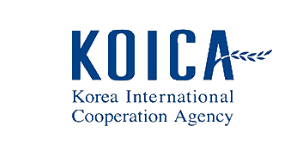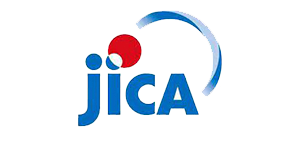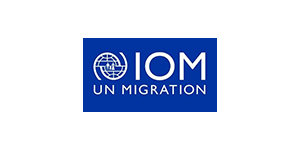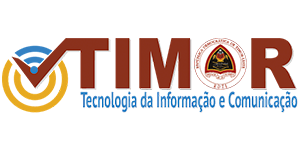HUMAN RESOURCES MANAGEMENT AND DEVELOPMENT
Adequate numbers of qualified and motivated personnel are needed to implement the national health laboratory policy and plan. A comprehensive human resources plan is developed to meet the projected needs of the laboratory service in line with the overall Human Resource Development Plan of the Ministry of Health.
- Health laboratory services shall only be provided by staff with recognized relevant qualification registered under the Regulatory Board.
- A scheme of service for laboratory workers with clear structure and opportunities for career advancement shall be in place.
- The Ministry of Health shall encourage and support training programs in Medical Laboratory Science at approved institutions to ensure that all laboratory staff have the necessary training required to fulfil their laboratory duties
- The National Health Laboratory shall recommend to local training institutions to regularly review and update their curricula to include emerging disease and advance in biomedical science.
- Current laboratory staffs that hold a Diploma in Medical Technology shall be given the opportunity to upgrade this qualification to Bachelor of Medical Laboratory Science (BMLS) so that they can undertake further post graduate study.
- The MoH in consultation with the National Health Laboratory should develop a laboratory carrier structure and promote opportunities for continuing education to support the implementation of the National Laboratory Policy and Plan.
- The government should encourage and support participation of the laboratory personnel, as appropriate, in the bachelor’s, masters and PhD programmes at approved institutions.
- The MoH shall encourage the establishment of a professional laboratory association.
- A code of professional ethics shall be established for laboratory staff. An Ethics Committee shall be established to evaluate violations of the role of the code of ethics and when necessary recommend disciplinary actions to relevant authorities.
- Staffs annual Posting and Transfers are done by the Ministry of Health in consultation with the Executive Director of National Health laboratory. A system of incentives to encourage staff to work in remote and underserved areas shall be established.
- Annual competency assessments of laboratory staff at the place of work shall be conducted in connection with annual performance appraisals to verify individual demonstration of necessary skills, knowledge and correct work practices.
- Annual performance appraisals of laboratory staff by the immediate supervisor shall be implemented using the standard Appraisal Tool of the Public Service Commission. Annual performance appraisals provide feedback to individual staff on work performance and guide career development.
- A human resource database shall be in place for each laboratory worker to include training and employment records, evidence of current registration, authorized area of testing, terms and condition of employment, job description, continuing professional development, competency assessment records, disciplinary actions and work injury records.
- The National Health Laboratory in consultation with National Institute of Health shall organize appropriate training programmes for all categories of staff working in health laboratories, linked to the professional registration process. Training programmes may include distance learning and intra- and inter-country exchanges including attendance to continuous education presentations.
- The department shall develop a standardized supervisory system to monitor work performance and quality of services delivered at each level of laboratory network, using standardized structured checklists and monitoring tools. Supervision should be of sufficient duration and frequency and include on-site evaluation, teaching, mentoring, monitoring, quality assurance and supportive feedback. Training and evaluation programmes for supervisors must be established.
- The National Health Laboratory will involve professional organizations in promoting professional development and ethical practice.
- The National Institute of Health, acting on advice from National Health Laboratory will set requirements for pre-service trainings whilst the Ministry of Health shall set requirements for staff continuing professional development.
LABORATORY QUALITY MANAGEMENT SYSTEM
Quality laboratory services are achieved by the establishment and maintenance of a Quality Management System in all aspects of laboratory services. Monitoring quality and its continuous improvement is an essential feature of the Health Laboratories.
- Quality Management System shall be in place in every health laboratory, with a Quality Policy which reflects the intention and commitment of facility management to ensure quality services are provided to all laboratory users.
- The National Health Laboratory shall develop, implement and monitor quality standards in all laboratories. The National Laboratory Quality Manager shall be responsible for coordinating all activities relating to laboratory quality and ensuring adherence to quality standards.
- All laboratory staff shall be trained in all aspects of the quality system.
- Internal Quality Control (IQC) shall be practised in all laboratory procedures.
- Laboratories at each level shall participate in appropriate and mandatory External Quality Assessment Schemes (EQAS).
- Laboratory performance will be continuously assessed through internal and external quality audits appointed by the regulatory board.
- A set of measurable quality indicators shall be developed and implemented to continuously monitor performance of laboratory services.
- National system of step-wise accreditation shall be developed.
- Regional or international accreditation of the laboratories shall be supported and promoted.
PROCUREMENT AND SUPPLIES MANAGEMENT
Selection and standardization of laboratory supplies and reagents are based on the types of tests performed and equipment used at every level of the national health laboratory system. Standardization promotes efficiency in inventory control, storage and distribution; better record keeping, quantification, procurement procedures, and procurement costs.
- Procurement of laboratory commodities shall adhere to public procurement guidelines applicable in Timor Leste.
- National Laboratory promotes evaluation and validation of laboratory commodities and reagents using standard guidelines. Commodities and reagents that do not meet required standards will not be procured. Registered commodities and reagents will be subject to regular checks to ensure quality is maintained.
- Laboratory reagents shall only be procured from approved manufacturer or selected from WHO prequalified in vitro diagnostic list.
- All donations of laboratory supplies shall comply with the appropriate national guidelines to ensure they meet required specifications and are appropriate for the level of laboratory.
- Standardized system for inventory and stock control will be established in every laboratory.
- Appropriate systems for receiving, quality checking and storage of commodities and supplies shall be in place in every laboratory.
- Appropriate staff shall be trained in procurement and supply management, including planning, quantification, costing, budgeting, storage, stock-keeping, inventory control and rational use of supplies. In-service training of technicians will be carried out to keep them abreast with updated technologies.
- A separate budgetary line item or activity code shall be established for the procurement of laboratory equipment, supplies and reagents.
LABORATORY INFORMATION MANAGEMENT SYSTEM (LIMS)
The national Laboratory Management Information System data base is used to generate relevant information and provide data for evaluating and planning quality laboratory and other health services.
- A standardized record keeping systems and recording and reporting tools shall be established.
- Laboratory Reporting Guidelines shall be developed to provide for nature and content of reported information, its use, periodicity, lines of reporting, and information dissemination guidelines.
- Analysis of data at municipal and central levels will be used to guide and support planning and procurement of supplies, equipment repair and human resource distribution.
- Appropriate data will be provided to relevant national disease control programs and Health Information System (HIS) as part of national programmes for surveillance and disease control.
- National data will be used for policy review, planning and resource mobilization.
- All laboratory data shall be stored in accordance to the Ministry of Health Policy for Records Management.
- Only authorized personnel shall have access to laboratory data to ensure confidentiality of patient information.
- Electronic Laboratory Information System shall be established at all laboratory facilities
WASTE MANAGEMENT AND OCCUPATONAL HEALTH AND SAFETY
Laboratory management must ensure that appropriate safety measures are applied in all laboratory practices and procedures to avoid potentially hazardous events that may affect/impact on personnel, equipment, facility and the environment.
- The National Health Laboratory must have a designated Safety Officer to oversee and coordinate all activities relating to laboratory safety nation-wide in close coordination with the hospital infection control officers.
- All laboratory operations in both public and private sector must comply with the national occupational health and safety policies and guidelines.
- Laboratory personnel of both public and private sector laboratories and non-laboratory personnel performing point-of-care testing must be provided with adequate protection to prevent occupationally acquired diseases and management in case of exposure, including appropriate immunization programs and postexposure prophylaxis.
- A biological waste management programme must be established in all health laboratories, including cleaning, disinfection, sterilization, and disposal of sharps and contaminated or unused material.
- Standard procedures must be in place for safe disposal of chemicals and supplies.
- Waste management in both public and private sector laboratories shall comply with the national environmental protection regulations.
- Accidents and injuries resulting during the course of duty shall be referred to appropriate Government procedures for making claims.
- Personnel of both public and private sector laboratories and nonlaboratory personnel performing point-of-care testing shall undergo introductory and refresher safety trainings
- Laboratory personnel of both public and private sector laboratories shall be provided with adequate protection to prevent occupationally acquired diseases and management in case of exposure, including appropriate immunization programs and postexposure prophylaxis.
RATIONAL UTILIZATION OF LABORATORY SERVICES
Rational use of Laboratory Services is very important to ensure maximum benefit with the limited resources available. Laboratory services can be either underused or overused, both of which can affect the health and/or finances of the public. Laboratory investigations need to be carried out for the right reasons, on the right specimens, at the right time and in the right place, and the results need to be interpreted correctly to improve the health outcomes.
- Clinical practice guidelines shall be updated to include patient assessment and rational use of laboratory services.
- Standard Operating Procedures on rational use of laboratory services must be developed for clinicians.
- Use of appropriate laboratory technology must be ensured at all levels of the health care system.
- Continuing professional development programmes for clinicians and other health care providers shall include good diagnostic practices and rational laboratory utilization.
RESEARCH AND DEVELOPMENT
Health laboratory services will continuously undertake Research and Development (R&D) to address emerging issues, improve efficiency and effectiveness of the services and ensure that they are responsive to public’s health needs.
- The Government shall promote and strengthen research in biomedical sciences and Clinical Laboratory Science
- Biomedical research capacity and specialized training shall be strengthened according to national priorities.
- The Ministry of Health shall mobilize resources for research activities from public funds or partners.
- All research and development in Timor Leste must be approved by the National Research and Ethics Committee. On any research relating to the laboratory, the researcher must consult the laboratory prior to submitting the proposal for approval. A National Laboratory Services representative must be included in the National Research Committee and Ethics Committee when research concerning the Laboratory is considered for approval. A copy of laboratory-related research results must be provided to the Director of Pathology and Medical Laboratory Services.
- Internal and external collaboration and involvement of laboratory personnel in research projects must be promoted. Laboratory personnel that participated in internal or external collaborative research must receive appropriate acknowledgment.
- A Laboratory Research and Development Committee must be established for continual review and identification of laboratoryrelated research priorities, coordination of laboratory-related research, and dissemination of research findings to all stakeholders.
- The Ministry of Health must make appropriate decisions and introduce policy initiatives on the basis of evidence generated by operational research, focusing on development of health laboratory services.
FINANCING THE LABORATORY SERVICES
The financing of health laboratory services must be part of the overall health financing plan in the national budgeting processes. Laboratory services can be funded through several mechanisms including government budgetary provision, grants from development partners and donations from other organizations.
- There must be provision of adequate financial resources to sustain uninterrupted delivery of quality and reliable laboratory services.
- Development of budget for health laboratory services shall be done in close coordination with district health directors, hospital directors and SAMES management team.
- Health facility budgets must be developed in consultation with laboratory managers.
- Laboratories shall be represented at all meetings for the planning and development of health sector budgets
- Planning and financing for laboratory service shall be based on laboratory need assessments
- Laboratory managerial personnel shall be equipped with knowledge and skills in planning process and budgeting, advocacy and resource mobilization for laboratory services.
- Continuous monitoring and regular updates of financial expenditure must be made available to laboratory managers.
- Efficient, effective, user-friendly and transparent system of financial record-keeping and reporting, with clear lines of accountability, shall be in place.
- All financial transactions must conform to the Timor Leste’s Public Finance Management Laws and regulations.
- Adequate financial resources must be provided for establishing and maintaining the laboratory quality management systems.
MONITORING AND EVALUATION
The Ministry of Health must develop mechanism to monitor and evaluate the performance of the health laboratory services and implementation of the National Health Laboratory Policy and Strategic Plan.
- The Laboratory information system must be integrated within the Health Information System and other disease surveillances programmes in the country.
- Reviews of the National Laboratory Policy must be undertaken on regular basis and updates and changes to the Policy be included in the next Policy and Planning cycle.
- Regular laboratory meetings must be carried out to ensure information is disseminated to all staff at all levels of the health laboratory service.
- The MOH shall put in place mechanisms to supervise, monitor, and evaluate the implementation of the laboratory policy with a focus on specified input and process indicators (such as human and financial resources and utilization of services). Evaluation of the Policy implementation will be conducted both internally and externally in collaboration with the MOH’s partners.
- A systematic supportive supervision program shall be established to provide technical assistance to peripheral laboratories.
Laboratory Biosafety and Biosecurity
Laboratory biosecurity describes the protection, control and accountability for valuable biological materials within laboratories, in order to prevent their unauthorized access, loss, theft, misuse, diversion or intentional release.
- NHL shall develop biosafety and biosecurity legal framework with strong enforcement mechanism and monitoring and evaluation
- The National Health Laboratory shall establish systems for biosafety and biosecurity
- Develop national action plan to strengthen biosafety and biosecurity at health laboratories
- All staff should be trained in biosafety and biosecurity







